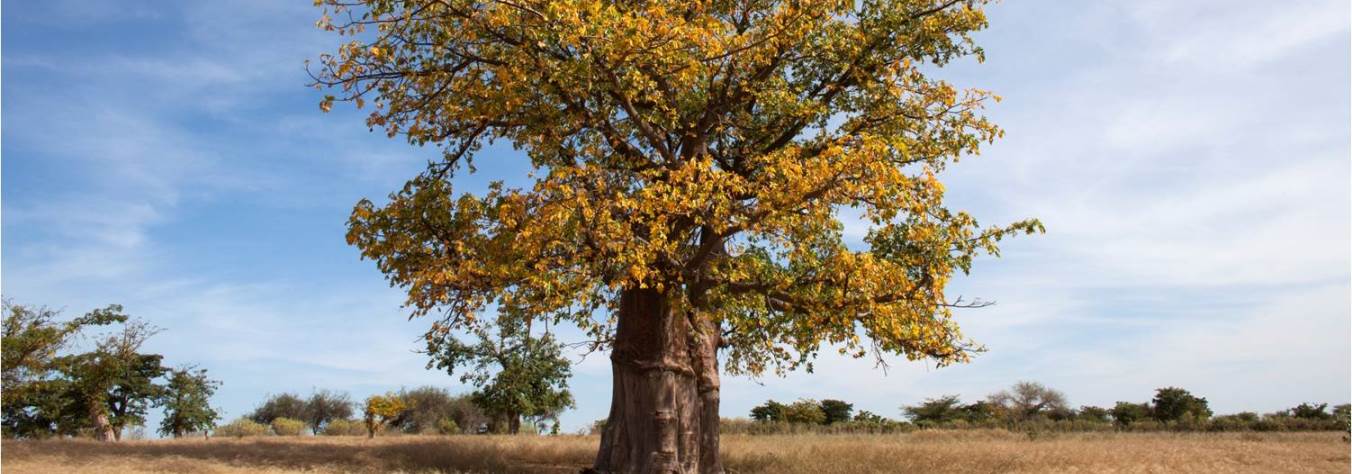
In Africa, land is our source of wealth, a source of life. But two-thirds of the continent is desert or drylands and nearly three-fourths of the land is degraded and exposed to a changing climate. This means hunger and poverty for 700 million people. Where will we find the land to feed the world? We need solutions, and we need them now.
TerrAfrica, an African driven initiative, is part of the solutions. This partnership addresses land degradation in Sub-Saharan Africa by supporting innovative solutions that sustain landscapes and increase countries resilience to a changing climate.

Burkina Faso, North. Yacouba Sawadogo, a 60 year-old Burkinabe farmer who has led an economic and environmental transformation in his community’s corner of the Sahel by replanting his own forest. He is known as “The Man Who Stopped the Desert”, as in the title of a 2011 documentary on his 38 years of recreating the forest. Photo: Andrea Borgarello/TerrAfrica
"The World Bank has supported the use of sustainable land and water management practices in Africa as they help deliver more secure livelihoods, economic growth, less hunger, adaptation and mitigation to climate change," said Magda Lovei, Sector manager in the World Bank Sustainable Development Network for the Africa region. "Our new President, Doctor Kim, has asked us 'What will it take to end poverty?' Well, ending land degradation would take as a big step toward that goal. We need to find and scale up solutions, and strengthen our partnerships like TerrAfrica to advance our shared goals of combating land degradation in Africa."
TerrAfrica has partnered with Connect4Climate on building a community, leading a campaign, and fostering a coalition that cares about climate change. Through this partnership, TerrAfrica leverages Connect4Climate's online community which provides a participatory, open knowledge platform to engage youth community in a climate change discussion. Together, TerrAfrica and Connect4Climate launched the Voices4Climate competition to invite young people to submit photos, videos, music videos, and podcasts that tell powerful climate change and sustainable land and water management stories. The Snap it. Sing it. Shoot it. Say it. Competition kick starts an interactive dialogue amongst African youth and gives them a voice in the global climate change conversation.
The two winners of the TerrAfrica Podcast category were invited by TerrAfrica to COP 18 in Doha where 190 nations met to find solutions to climate change issues. "The interaction we had with fellow journalists, the interviews conducted, and the plenary sessions attended broadened our horizons in covering climate change and environment issues within our countries and across the world," said Pilirani Tambala, one of the winners working for Zodiak Broadcasting System in Malawi. Look for more information on their winning entries and their trip to Doha in Wednesday’s blog post.
COP18 was also an opportunity to present the World Bank Drylands and Adaptation to Climate Change Agenda. The new the World Bank/GEF Sahel and West Africa Program in Support of the Great Green Wall is an example of initiative supported by TerrAfrica as it strengthens a country-driven vision for sustainable and climate-resilient development in 12 African countries.

Ethiopia, Tigray region: Women on a break after working at the tree nursery part of the World Bank funded Sustainable Land Management Program. Photo: Andrea Borgarello/TerrAfrica
In Africa, the integrated challenge of land degradation and climate risk requires an integrated solution. Sustainable land and water management practices have been proven at small scale, but are often neglected in national strategies due to the highly fragmented nature of land related institutions, lack of knowledge sharing, and minimal investments. Single sector approaches, isolated projects, and individual institutions cannot sufficiently address the multidisciplinary challenges posed by land degradation and climate change.
TerrAfrica partners like the World Bank have helped make durable progress by promoting country-led, multi-stakeholder coalitions that identify and promote good practices, harmonize policies, share knowledge, make domestic and international financing more efficient, and ultimately, strengthen the ability of land users, farmers and herders to individually and collectively reduce land degradation and climate risks.



